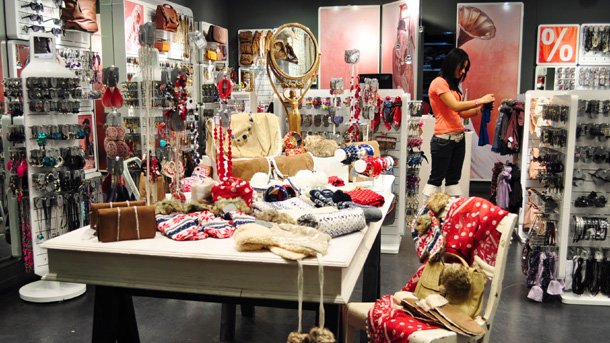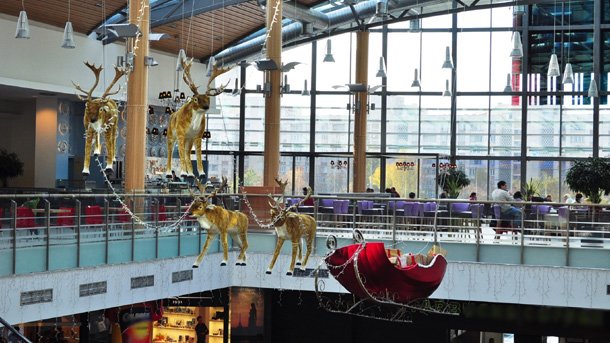
© Photo: Veneta Nikolova
Bulgarians today are easily tempted by the allurements of consumer society. Used to modest lifestyles and keeping memories of the wide-spread deficit during communism, most people hailed the emergence of shopping malls seen as the symbol of consumer prosperity. The shopping mall grew into a way of living and breathing – and as a culture of communication. People not only do the shopping there but also meet with friends, get entertained and – at least for a couple of hours - feel integrated with a deluxe world of consumer affluence. One of the Sofia-based shopping malls has become the backbone of one of the most successful Bulgarian TV series, Glass House, that enjoys top ratings. The euphoria that swept the country as the very first shopping malls opened locally, however, has now withdrawn opening room for some sobering, a recent poll found. It suggests that Bulgarians are no longer eager to buy expensive brands for the simple pleasure of buying from a shopping mall. Shrinking incomes have badly affected sales and customers have become fewer. Well, of course the retail centers still have visitors but 60 percent of them are students. It seems that teenagers love to thrive in the deluxe and comfortable atmosphere of the shopping malls where they spend the money of their parents in fast food restaurants and in playground areas. No wonder then that most parents have been trying to protect their kids from the influence of mall culture and its illusory values.
Dobromir Ganev, CEO of GVA Bulgaria, comments the opening of three new giant shopping malls in Sofia.
“Once they open the ratio will be 305-310 sq. m of retail area per 1000 people, and this is above the European average. There are some Bulgarian towns where this ratio exceeds the ratio in well-off countries such as Luxembourg that ranks first in terms of retail area per capita. On the other hand the volume of consumption locally does not allow for the normal operation of such retail centers. At the end of the day however, the decision to open retail centers is made by investors who have done their marketing homework beforehand, and so the responsibility is theirs.”

© Photo: Veneta Nikolova
The unstoppable drive of companies to build new retail centers runs counter to any economic logic. Experts warn that the huge shiny structures are doomed to stay half-empty until the crisis subsides. Probably such investments are made for the longer term and are based on optimistic forecasts about the development of the business climate in Bulgaria. Here is one more curious thing: a poll held by Radio Bulgaria suggests that consumer withdrawal has only failed to hurt some hyper-expensive boutiques that have continued to enjoy the unwavering interest of wealthy customers. Well, it seems well-to-do Bulgarians are not at all bothered by the crisis. Here comes the comment of a sales assistant in one of those boutiques: “The crisis is no problem. If you have only 10 leva, you won’t even think of entering this store. The mall is a place for the rich”, she says. At least, this is the case in Bulgaria.
Translated by Daniela Konstantinova
The prices of Easter goods are rising The Easter meal in the Balkan countries will be more expensive this year, BTA reports. Lamb in Serbia costs about 1,400 dinars (EUR 11.5) per kilogram in supermarkets. On Good Friday, fish..
Residents and visitors to Sofia will have the opportunity to learn more about Bulgarian scientists working in Antarctica and their important role in the exploration of the continent. The exhibition "Antarctic People - Caring for the Earth" by BNR..
Looking and feeling your best doesn’t have to come at a high price — especially in Bulgaria. The country has become a rising star in beauty tourism, offering top-tier salon services at prices that won’t break the bank. Whether you’re a local or a..
The prices of Easter goods are rising The Easter meal in the Balkan countries will be more expensive this year, BTA reports...
Residents and visitors to Sofia will have the opportunity to learn more about Bulgarian scientists working in Antarctica and their important role in the..

+359 2 9336 661
